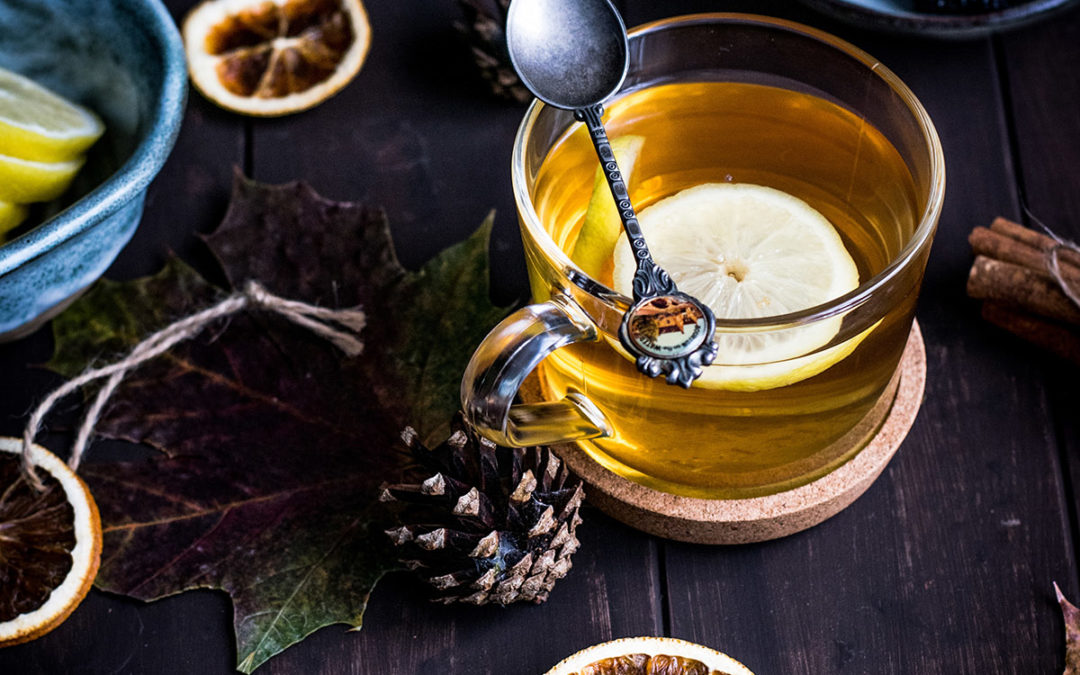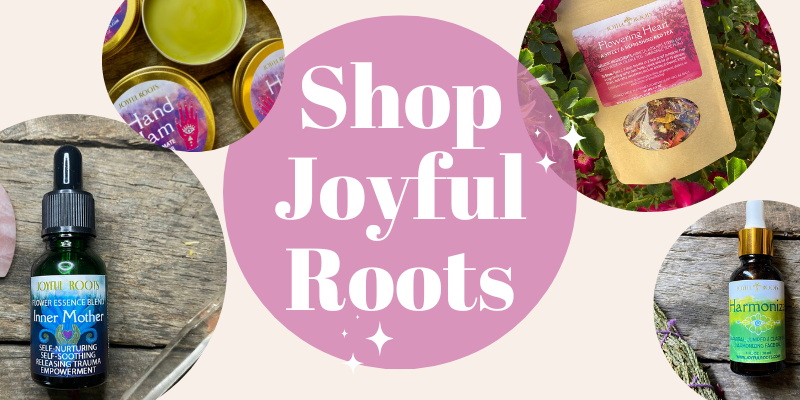“All Disease Begins in The Gut.” – Hippocrates

If you are suffering from acid reflux, you are so not alone. Gastroesophageal reflux disease (GERD) is one of the most common digestive diseases in the United States, with 10-20% of Americans experiencing it’s painful symptoms weekly.
I’ve struggled with acid reflux at various times in my life. When I was in college I was put on a proton pump inhibitor to help manage it. When I was in my third trimester carrying my little bear, I had such bad acid reflux it eroded my esophagus and I was hoarse for over a year. When I get migraines one of my first symptoms is acid reflux. I’m not a stranger to how much it sucks.
BUT…I’ve found some amazing help from my herbal allies and I can pretty much count on them when I need them most.
Before I start talking about them, however, I want to take a minute to talk about the root causes behind acid reflux and how the often used allopathic approach can actually make the problem worse. Getting to the root cause of the GERD or acid reflux is really the only long-term solution.
Let’s start with a chat about proton pump inhibitors (PPI’s), which are a type of drug prescribed to treat acid reflux. In 2014, Americans filled more than 170 million prescriptions for acid blockers.
Proton pumps are present in nearly every cell in our bodies, are a transporter of hydrogen ions, and are essential for cellular energy production. PPI’s inhibit these proton pumps and thereby inhibit the production of stomach acid in your body. What’s more, it is likely that PPI’s don’t just affect the stomach, since proton pumps are found throughout the body. Without an efficient proton-pumping system, the body must rely on anaerobic systems for energy production and that can lead to fatigue. Additionally, PPI’s are indicated for use for only 4 to 8 weeks, however, many people end up staying on them for years or even decades.
The thing is, while PPI’s and antacids can be effective at helping to minimize acid reflux, they are really just masking the symptoms of a larger imbalance in the body, and can also lead to some rather serious side effects or further exasperate your problem of acid reflux when you do stop taking them. Why? Stomach Acid is ESSENTIAL for a healthy digestive system and PPI’s and antacids decrease stomach acid.
Acid reflux occurs because the lower esophageal sphincter is not opening and closing properly, causing the stomach acid to travel upwards to places it shouldn’t be. However, contrary to popular beliefs, one of the main reasons that people get acid reflux is because their stomach acid is actually TOO LOW. This means we don’t have enough digestive secretions to properly digest our food which leads to fermentation and gas, and that pressure forces the sphincter open, creating backward movement of stomach acid. It’s the upward traveling of the stomach acid that causes heartburn and acid reflux, not too much stomach acid!
A few other reasons why the sphincter may not be working properly are overeating, poor posture, a weak diaphragm, a Hiatus hernia, H. Pylori, hormonal imbalances, food intolerances, etc. One thing is for certain, however, lowering your stomach acid through use of PPI’s long-term is detrimental to your health and does not fix the root cause of the problem.
The lowered stomach pH from use of PPI’s can cause a host of issues in our bodies. After-all, our bodies are whole systems with organs and functions being interconnected. A few of these problems associated with low stomach acid are:
- Decline in cognitive function. Low levels of amino acids have been linked to depression and other mood disorders. A 2016 study found that people who use PPI’s regularly had a 44 percent increased risk of dementia. Another study found PPI users to have impaired visual memory, attention, executive function, and working and planning function compared to the control group.
- Alterations of gut microbiota leading to increased risk of acquiring pathogens. Lower stomach acid gives unwanted bacteria and other pathogens better opportunity to settle into our digestive tract, which can result in an increased likelihood of UTI’s and other illness. People with low stomach acid have an increased chance of acquiring Clostridium difficile, Campylobacter, Salmonella, Shigella, Listeria, and community-acquired pneumonia. Our gut flora can also become overrun with candida.
- Leaky gut (increased intestinal permeability). When our stomach acid is low, we do not digest food efficiently and this can cause tiny holes in our digestive tract to form. Food particles , bacteria, and toxins that would normally be filtered into the waste stream, instead move through the intestinal barrier and into the bloodstream. This can trigger an autoimmune reaction and/or chronic inflammation in the body.
- Increased likelihood of vitamin and mineral deficiencies. Because of the increase in gastric pH and how the mechanism of action affects the potassium exchange, PPI’s can modify how bioavailable essential vitamins and minerals are in the stomach. Stomach acid is essential for the absorption of many macro- and micronutrients. In some people, this can lead to deficiencies in vitamins and minerals such as B12, Vitamin C, Calcium, Iron, and Magnesium. Some of these deficiencies can have serious health consequences.
- Increased risk of cardiovascular events and potential damage to blood vessels.
- Harm to kidneys.
So what are we to do? Well, the solution may be multifaceted and vary from person to person. You also don’t want to stop taking PPI’s cold turkey. It’s best to wean off them with the help of a qualified practitioner. The main reason that I’m writing this is to let you know that PPI’s can be harmful and that very effective, natural alternatives do exist!
I’ll first tell you what has generally worked for me, and then offer a few other possible supportive measures. As I mentioned before, every individual is different so it is really best to work with a practitioner who can assess your personal constitution and choose herbs best suited for you as an individual.

Here is my personal approach:
Step 1: Calm the irritation and repair the gut.
My favorite herb for this is Marshmallow Root. It’s relatively abundant and creates a beautiful mucilaginous coating that helps to protect the gut lining, also soothing and cooling irritation and inflammation.
The best way to take marshmallow root is as a cold infusion. I make a whole liter mason jar of marshmallow infusion and drink throughout the day. Fill a mason jar with 1 oz, of chopped, dry marshmallow root and cover it with filtered room temperature water. Let this sit for 4 to 8 hours then strain the liquid through a cheesecloth, making sure to squeeze out and include the “slime” in the liquid. Discard the herb and keep the liquid portion. Drink a quart jar throughout the day.
For general gut health, I also love regular use of Calendula, Ginger, Mushrooms (white button mushrooms, shiitake, and reishi are the main ones that I have used), Ghee (not an herb but is helpful), Berries (again not necessarily an herb but a great source of polyphenols).
Step 2: Aid Proper Digestion with digestive bitters and carminatives.
Taking these herbs before a meal can ignite digestive fire and support the production of hydrochloric acid, pancreatic enzymes, and bile. I have several digestive bitters formulas I have made for myself that I take before meals. I find that bitter tinctures are the easiest way to add bitters to my own routine, but you could also eat something bitter, like bitter greens or my new favorite, Schisandra berries, before a meal.
Some herbs included in my various bitter recipes are Dandelion leaves or roots, Motherwort, Lime peel, Grapefruit Peel, Chamomile (a strong cup of chamomile can work wonders…but brew it STRONG). Because my digestion tends to be cold and slow, I tend to enjoy and find helpful the warming effects of carminative herbs like fennel, caraway, cinnamon, cardamom, ginger, and anise.

HOW TO BREW CHAMOMILE TEA AS A BITTER
Place 2-3 heaping teaspoons (a bit less for a child) of fresh dried chamomile flowers in a teapot or heat-safe vessel.
Pour about one cup of boiling water over the herb, cover (very important), and steep for about 10 minutes. Strain. Enjoy.
There are many other factors to consider including diet, stress, movement patterns, environmental factors, etc. but I won’t get into all of these today because this post could go on forever!

Others herbs to consider, that I do not personally use frequently but are still very well regarded, may be: food grade Aloe Vera gel/juice, Ashwagandha, Licorice Root, Slippery Elm (from a sustainable source only please), Triphala, Gotu Kola, peppermint, yarrow, artichoke leaf, yellow dock root, Angelica Root, Gentian Root. Always do your research or speak to a qualified health professional regarding dosage.
There have also been some promising studies done on the benefits that Melatonin supplements can have on your GI health – “Researchers compared the effects of 3 mg of melatonin per day to drug treatment with omeprazole (a PPI) for eight weeks. They found symptoms of GERD, like heartburn and pain, to be decreased after four weeks and completely resolved after eight weeks in both groups.”
Here are a few other tips:
- Try smaller, more frequent meals.
- Maintain good, upright posture.
- Strengthen your diaphragm with gentle exercises. Personally, I love kundalini yoga for this, especially Breath of Fire.
- Remain upright for about 2 hours after meals.
- Chew your food thoroughly.
I hope that this article has empowered you and helped you to understand that it is possible to get to the root of the problem when it comes to GERD and acid reflux. It is possible to feel better!
Although I’m still a work in progress, I’m proof that healing happens! Today my digestive problems are at a minimum, and I can say acid reflux is a rare occurrence for me. It’s amazing how much better my overall health is now that so many of my digestive discomforts are resolved. I hope the same for you!
Note: As I am not a licensed medical professional so please do your own research, and consult with your physician to determine what is right for you. This post does not constitute medical advice and is not intended to treat or diagnose anyone.
This post may contain affiliate links. By purchasing through these links, it doesn’t cost you any extra, but allows us a small commission which helps us to continue posting informative articles for you!





